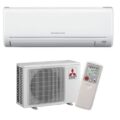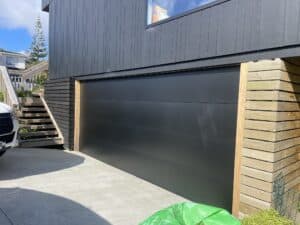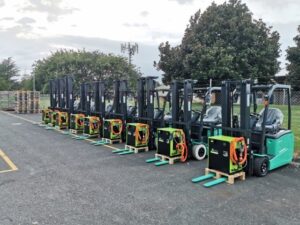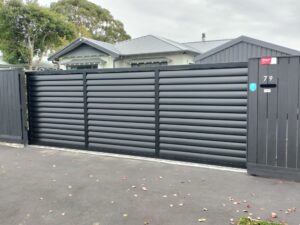Upgrading your home heating system can feel like a major expense, but it doesn’t have to be. Through the Warmer Kiwi Homes Grant, eligible New Zealand homeowners can access generous government funding that significantly reduces the cost of installing an energy-efficient heat pump.
Whether you’re dealing with cold winters in the lower North Island or simply looking to reduce power bills, this grant offers a practical, affordable pathway to a warmer, healthier home.
If you’re considering heat pump installation in Palmerston North, this grant can help cut your costs dramatically. Local installers familiar with the scheme can guide you through eligibility and make the upgrade simple and affordable.
With energy prices on the rise and more homeowners seeking cost-effective ways to stay warm during winter, demand for heat pumps has surged. However, many still find the initial cost of purchasing and installing a system out of reach. This is where the Warmer Kiwi Homes Grant steps in, offering a financial bridge that makes heating upgrades not only possible but smart.
Key Takeaways
- The Warmer Kiwi Homes Grant can cover up to 90% of the cost of an approved heat pump
- Homeowners who meet income and property criteria can access grants worth up to $3,450
- EECA-approved installers handle both installation and grant facilitation
- High-wall heat pumps are the only type covered under this scheme
- Significant power bill savings make heat pumps a smart long-term investment
- Installation through certified professionals ensures lasting performance and peace of mind
What Is the Warmer Kiwi Homes Grant?
The Warmer Kiwi Homes Grant is a government initiative designed to help New Zealanders heat their homes more efficiently. Run by the Energy Efficiency and Conservation Authority (EECA), the programme subsidises the cost of installing efficient heating systems for low-income homeowners. Heat pumps, which offer superior energy efficiency and comfort, are a major focus of the scheme.
The grant typically covers up to 90% of the total cost of a high-wall heat pump, including installation. For many homeowners, this means a new heat pump system can be installed for as little as $300 to $700 out of pocket. It is a practical way to bring reliable, energy-efficient heating into homes that need it most.
The programme is part of the government’s wider strategy to reduce carbon emissions and improve the quality of housing in New Zealand. By targeting inefficient heating sources and supporting low-income households, the grant contributes to healthier living environments and more sustainable energy use.
Who’s Eligible for a Heat Pump Grant?
To access the Warmer Kiwi Homes Grant, you must meet specific criteria. First, the property must be owner-occupied and built before 2008. Second, you must either hold a Community Services Card or live in an area identified as low-income. The EECA provides a tool online where you can check whether your address qualifies based on these factors.
Another condition is that your home must not already have a fixed heating source in the main living area. The programme is focused on upgrading inefficient or unsafe heating, not replacing existing effective systems.
In some cases, eligibility may also depend on insulation levels in your home. A warm, efficient home starts with proper insulation, so the grant may be conditional on ceiling and underfloor insulation being in place. Installers can help assess and advise on this as part of the process.
If you live in Palmerston North and meet the above criteria, now is the perfect time to explore this opportunity. With the region’s cooler climate, heat pumps provide a reliable and cost-effective heating solution.
How to Apply: Step-by-Step
Applying for the grant is straightforward, especially if you work with an EECA-approved installer. These professionals are familiar with the paperwork and eligibility checks required. Once eligibility is confirmed, the installer will schedule a site visit to assess the property and recommend the right unit for the space.
From there, the grant application is submitted through the installer, and once approved, the installation can usually happen within weeks. Homeowners only pay the balance not covered by the grant directly to the installer after the job is completed.
To ensure your application is successful, have the necessary documentation ready. This includes proof of ownership, a recent rates bill, and Community Services Card (if applicable). The installer will handle most of the admin, making the process less stressful.
Regional Heat Pump Providers You Can Trust
Choosing the right installer is vital. Look for companies that are not only EECA-approved but also experienced with residential heat pump systems. A reputable provider will help you navigate the grant process, recommend the appropriate size and model for your space, and ensure the installation meets current energy efficiency standards.
Good providers will conduct a site-specific assessment to ensure the heat pump is positioned for optimal performance. They’ll also explain how to operate and maintain the unit to extend its lifespan and maximise energy savings. Post-installation support, access to warranties, and routine servicing options should also be part of their offering.
When selecting an installer, check for recent reviews, industry certifications, and clear communication. Avoid lowball quotes that skip on quality or cut corners. The right provider will offer competitive pricing, but also stand behind their work with guarantees and follow-up service.
For homeowners in Palmerston North, working with a local heat pump installation expert ensures the system is tailored to the region’s climate and building styles. Local experience counts when it comes to maximising comfort and efficiency.
Before you decide on heat pump installation in Palmerston North, it’s worth comparing how different climates affect system performance, like we explored in our guide to choosing the best heat pump for Ashburton’s climate.
What Kind of Heat Pump Is Covered?
The grant only applies to high-wall heat pumps. These units are popular in New Zealand homes due to their space-saving design and efficient heating capabilities. To qualify under the grant, the unit must meet strict energy efficiency standards set by EECA, ensuring your investment is both cost-effective and environmentally responsible.
Other types of systems like floor consoles, ducted heat pumps, or multi-split units are not eligible under the scheme. This is to keep the grant focused on single-room heating, which offers the highest energy efficiency return for the cost.
High-wall heat pumps also tend to be easier to install and maintain. Their elevated placement allows for better airflow and consistent temperature distribution. Many modern models come with smart controls and quiet operation features, making them a comfortable and unobtrusive addition to any living space.
Long-Term Benefits Beyond the Subsidy
The most immediate benefit is, of course, the upfront cost savings. But the long-term financial gain is where heat pumps really shine. Compared to older electric heaters or unflued gas options, heat pumps can reduce power bills by hundreds of dollars annually. Over a few winters, they more than pay for themselves.
From a comfort perspective, heat pumps offer reliable heating that is thermostatically controlled and consistent. Many units also offer cooling for the summer months, making them a year-round solution. Add to that the improved air quality and reduced dampness in the home, and the benefits go beyond just warmth.
Heat pumps also support environmental goals by using electricity more efficiently. They produce fewer greenhouse gas emissions than traditional heating sources, particularly when paired with renewable energy from the grid or solar panels. For households looking to future-proof their homes, a heat pump is a solid step forward.
Common Pitfalls to Avoid with the Grant
One of the biggest mistakes homeowners make is attempting to DIY or hire non-approved installers. This disqualifies you from receiving the grant and can lead to poor installation quality. Always choose a licensed, EECA-approved installer who understands both the equipment and the compliance process.
Another common issue is choosing the wrong size or location for your heat pump. Oversized units can short-cycle and waste energy, while undersized ones will not adequately heat the room. Let the installer assess the space and recommend a system that matches the room’s dimensions, insulation, and usage patterns.
Also, be cautious of delaying your application. Funding is limited and allocated on a first-come, first-served basis. If you meet the eligibility criteria, start the process sooner rather than later to avoid missing out.
The Smart Way to Heat Your Home Affordably
If you’re living in a qualifying area and your home fits the eligibility criteria, the Warmer Kiwi Homes Grant is an outstanding opportunity to install an energy-efficient heat pump without breaking the bank. Not only will it reduce your upfront costs, but it will also deliver long-term energy savings and a more comfortable home environment.
Work with a trusted, EECA-approved provider who understands the local climate and compliance landscape. From helping with paperwork to ensuring a tidy install, the right partner makes the whole process stress-free. Investing in a high-quality heat pump through the grant scheme is one of the smartest upgrades a New Zealand homeowner can make.
To get started with heat pump installation in Palmerston North under the Warmer Kiwi Homes Grant, connect with an experienced local installer who can guide you through every step. The sooner you act, the better your chances of securing funding before it runs out.
Don’t let another winter go by relying on inefficient, expensive heating. If you’re based in Palmerston North, take advantage of this opportunity to future-proof your home with an efficient, grant-supported heating solution. The Warmer Kiwi Homes Grant is a step toward smarter, safer, and more sustainable living.
Have you read these articles?
 How to Choose the Right Heat Pump for Your Home
How to Choose the Right Heat Pump for Your Home
 Experience Superior Comfort With Mitsubishi Heat Pumps In Hamilton
Experience Superior Comfort With Mitsubishi Heat Pumps In Hamilton
 How to Properly Size Your Heat Pump for Maximum Home Efficiency
How to Properly Size Your Heat Pump for Maximum Home Efficiency
 Practical Environmental Benefits Of Using Heat Pumps In Tauranga
Practical Environmental Benefits Of Using Heat Pumps In Tauranga
 Everything you Need to Know About a Heat Pump Hot Water Cylinder
Everything you Need to Know About a Heat Pump Hot Water Cylinder






